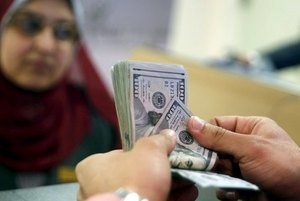
Egypt Shuts Down 48 Forex Bureaus in Black Market Crackdown, Sources Report
CAIRO – Egypt’s central bank has closed 48 foreign exchange bureaus since the beginning of the year due to violations including trading at black market rates, according to banking sources. This action is part of the government’s efforts to curb speculation against the Egyptian pound.
The crackdown has intensified against black market traders, who are seen as contributing to the increasing pressure for the currency to be devalued. Currently, the dollar is reportedly being sold in the black market for approximately 12.65 to 12.75 Egyptian pounds, a stark contrast to the official rate of 8.78 pounds.
Egypt, which relies heavily on imports, has faced a deepening shortage of foreign currency since the 2011 uprising that resulted in the departure of long-time leader Hosni Mubarak. This political turmoil has deterred foreign investment and tourism, both critical sources of hard currency.
In a legislative move on Tuesday, Egypt’s parliament established prison sentences ranging from three to ten years and fines up to 5 million pounds for engaging in black market currency trading.
A banking official, who requested anonymity, noted that out of the 48 closed exchange companies, 26 have been permanently shut down while 22 are suspended for periods ranging from three months to a year. At the end of the previous year, there were 115 licensed foreign exchange bureaus in Egypt, but that number has now dwindled to just 67.
In March, Egypt devalued its currency by nearly 14 percent in an effort to reduce the discrepancy between the official and black market rates. However, this adjustment did not alleviate the severe shortage of foreign currency, and the gap has once again widened.
Since 2011, net foreign reserves have more than halved, reaching $15.536 billion in July—enough to cover less than three months of imports.
Currently, Egypt is in negotiations for a $12 billion lending program with the International Monetary Fund (IMF). This program aims to address funding shortfalls, restore market confidence, and attract investment to alleviate the currency crisis.
Economists predict that another devaluation is likely within the year, alongside needed reforms that may include transitioning to a more flexible exchange rate system. The central bank has indicated that it will refrain from floating the pound until foreign reserves reach at least $25 billion, a target it hopes to meet by the end of the year.
 GOOGL
GOOGL  META
META 


